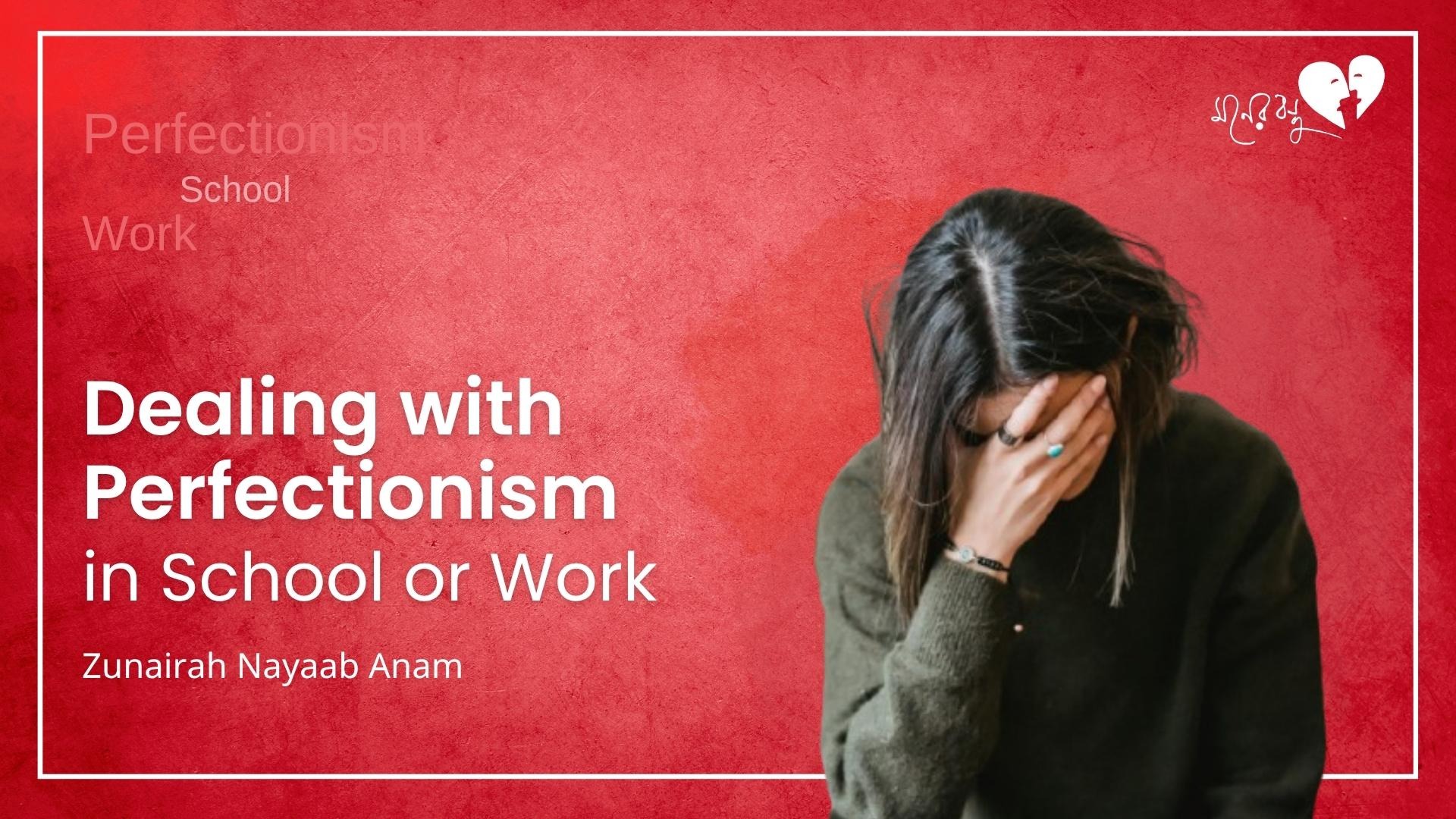
Zunairah Nayaab Anam
Outstanding academic achievements or high employee performance may be the ultimate goal to many. While such situations may bring motivation or even excitement, it can also lead to a hidden development within the human mindset, called “Perfectionism”.
What is “Perfectionism” and What Causes It?
Perfectionism is described as one’s refusal towards anything that does not match their expectations or is short of perfection. It is when people try to be flawless, which eventually takes a downturn as many pressurise themselves to become their best version and worry what others think of them and their abilities.
Perfectionism develops from a combination of numerous factors: the environment that someone grew up in, family history, or it can simply be one’s personality.

How can Perfectionism impact mental health?
Perfectionism can often hamper one’s success in many real-world situations. At school, perfectionists may dedicate their whole day in perfecting a single essay and avoid submitting tasks unless they feel ‘perfect’. At the workplace, perfectionists might overthink the minor details and avoid taking newer opportunities and face any flaws or struggle with feedback. While the intention for perfectionists is to do their best and submit flawless work, the process is often exhausting, which can result in frustration or even burnout.
Perfectionism can also cause anxiety and depression, due to the constant pressure of maintaining a ‘perfect’ image. Such mental health struggles lead to the fear of mistakes and when a perfectionist does make a mistake, it ends with harsh self-criticism which can lower one’s self-esteem.
What are the Symptoms of Perfectionism?
It is important to recognize such behaviour before it can further impact one’s mental health. Certain signs of perfectionism include:
Constantly worrying about making mistakes and overthinking about past mistakes.
Waiting for the ‘perfect’ moment to start a task, or procrastinating
Always worrying about getting judged by others.
Never feeling satisfied with your work.
Setting impossibly high expectations for yourself and others.
How to Manage Perfectionism?
Dealing with Perfectionism takes time and consistency. When someone deals with perfectionism, it is difficult for them to change their perspectives and easily embrace flaws or mistakes. Small steps at a time can lead to greater results. Here is how you can start:
Break down your assignments or office tasks into small chunks to make it less daunting and easier to finish.
Make a daily schedule/to-do list to keep in track with your assignments or tasks to avoid feeling overwhelmed.
Set a limit as to how many times you will re-read or edit your work before submission, to avoid chances of overthinking your task.
Embrace your mistakes and flaws as they are a part of your learning process. View them as positive opportunities for growth and for creating a healthier and better version of yourself.
“Perfectionism” cannot be cured overnight, but awareness is the first step towards healing. Take small steps towards healing from perfectionism.
When we embrace our mistakes and flaws, not only do we learn better but we grow into a better version of ourselves.
ব্লগটি মনের বন্ধু এক্সপার্ট দ্বারা রিভিউয়ের পরে প্রকাশিত
এই ব্লগের একমাত্র উদ্দেশ্য মানসিক স্বাস্থ্য বিষয়ক সচেতনতা বৃদ্ধি করা। পাঠকের বোঝার সুবিধার্থে এতে কিছু প্রতীকি ঘটনা ব্যবহার করা হয়েছে।
এই ব্লগ বা এর কোনো অংশ পড়ে কেউ আঘাতপ্রাপ্ত হলে তার জন্য লেখক ও ‘মনের বন্ধু’ দায়ী নয়। মনের ওপর চাপ অনুভব করলে বা মানসিকভাবে ট্রিগার্ড অনুভব করলে দ্রুত মনের বন্ধু বা যেকোনো মানসিক স্বাস্থ্যবিদের সাথে যোগাযোগ করুন।
মনের বন্ধুতে কাউন্সেলিং নিতে যোগাযোগ করুন: ০১৭৭৬৬৩২৩৪৪।
📍: ৮ম ও ৯ম তলা, ২/১৬, ব্লক-বি, লালমাটিয়া, ঢাকা

Mental stress is our emotional and psychological response when we feel overwhelmed, pressured, or threatened by challenging situations.

Though the era has moved on, the society of our country is still dark. I am saying this because almost all families in our country think “What is mental health again? What is depression?

In the bustling streets of Bangladesh, amidst the vibrant culture and rich traditions, lies a silent struggle that often goes unnoticed—the mental health challenges faced by Bangladeshi men. While the

এই ব্যস্ত নাগরিক জীবনে ‘ছুটি’ মানে মুক্তি, আনন্দ, বিশ্রাম! ছুটি শুনলেই মন ছুট লাগাতে চায় দূর তেপান্তরে! তবে অনেক সময়ই দেখা যায় ছুটির দিনেও ব্যস্ত থাকতে হচ্ছে দাওয়াতে, আপ্যায়নে, সামাজিকতায় আর আতিথেয়তায়